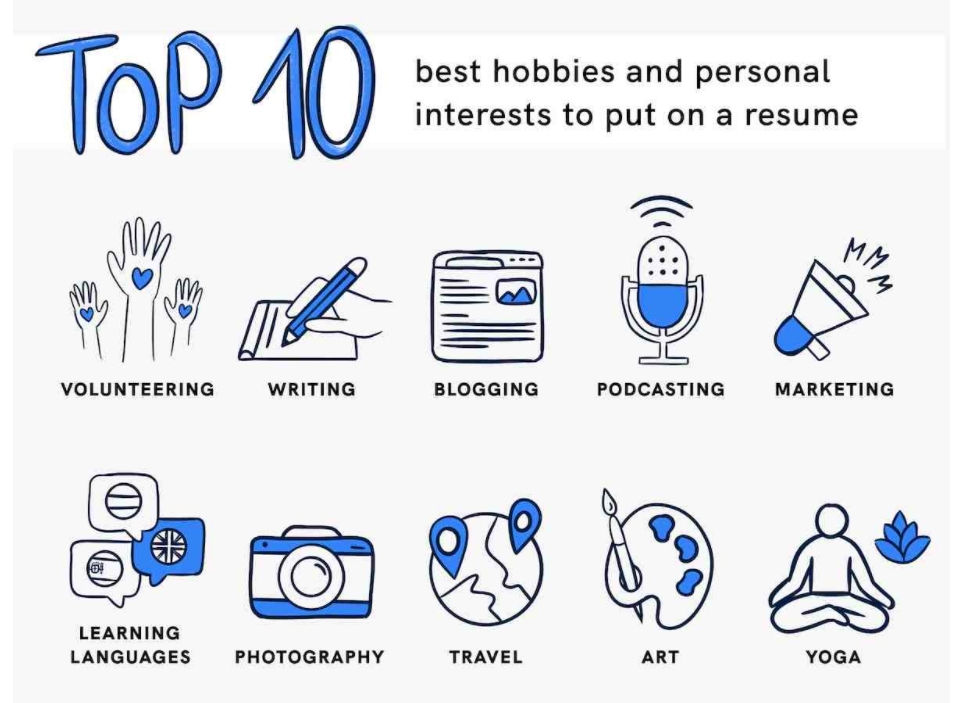Including Your hobbies and interests
Your hobbies and interest are an entirely optional section and should only be added if they are somehow relevant to the jobs or companies you are applying to.
Generally speaking, they work best for candidates with no experience, to help demonstrate skills outside of the workplace.
-
Which hobbies to add to your CV
- Volunteering – Any volunteer work is normally a great addition to your CV, especially if t’s for a good cause, or it directly relates to your target roles. Either way there should be plenty of work-related skills you can highlight from volunteer work.
- Writing – Writing is a great communicative skill that is required in plenty of jobs, so if you have any personal writing hobbies (such as a blog or writing classes) then it can be worth mentioning them.
- Sports – Involvement in a fairly serious sports team or individual sport involves dedication, teamwork, and shows you have the ability to commit yourself to a cause.
- Strategy games – If you play in a chess league or similar equivalent, this can be a good way of showing recruiters that you are bright and tactful.
- Charity and events – If you have any involvement in the organising and planning of events in your spare time, it should definitely get a mention in your CV. Maybe you help to run an after-school club, or support the promoting of a local music event – lots of workplace skills can be drawn out of event planning hobbies.
- Travel – Some employers really love to see travel on a CV, especially the more modern trendy employers like Google and Facebook. Travel involve lots of planning, bravado, and teaches you a lot about different cultures and lifestyles.
- Practical work – This one applies mainly to candidates applying to engineering or trade roles, but if you have any hobbies that involve building or fixing things, it can be a great way to prove your ingenuity and technical know-how.
-
Which hobbies to keep out of your CV
- Common pastimes – Common pastimes are essentially hobbies that 99% of the population take part in. Things like eating out, going to the cinema, reading or socialising. These hobbies will not set you apart from other candidates, so there’s no need to waste space on your CV by writing about them.
- Sensitive subjects – If you have hobbies that involve any subjects that could be considered sensitive (topics such as politics or religion) then I would advise leaving them out to be safe and ensure you don’t encounter any discrimination.
- Passive hobbies – Hobbies such as supporting a football team or watching television don’t require much input from you personally, so they will not impress employers.
Interests are optional and in many cases, they won’t make a huge difference – but if you feel that they could make you appear more suitable and benefit your application, then you should include them.
